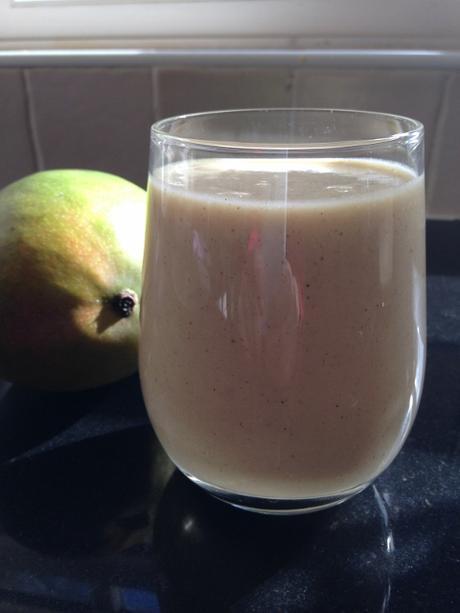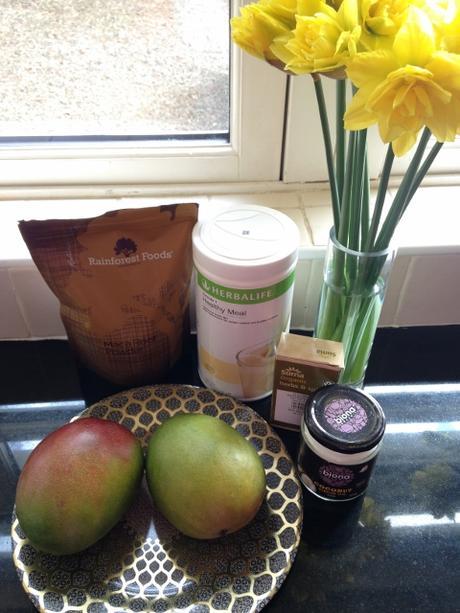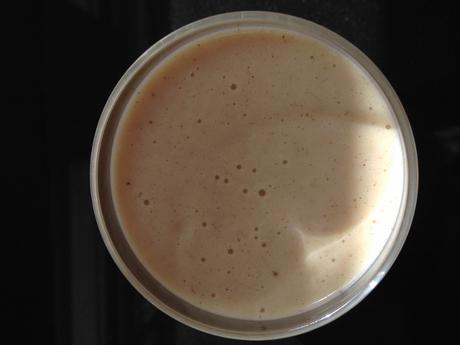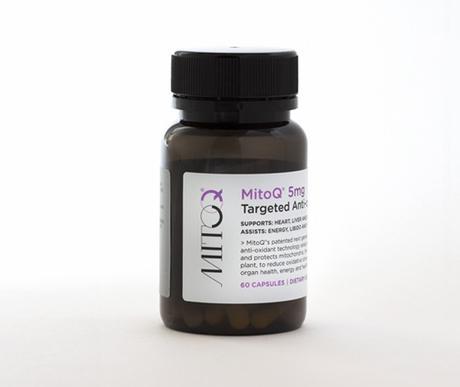Now that I’m feeling perkier and am officially Back on the River, I thought I’d mention a few things that I’ve tried in my quest to get my mojo back. My recovery was mostly down to being sensible (*yawn*) – taking a break from hard exercise, eating well, yada yada yada. But life being life, I didn’t manage as much of this thing called “rest” as I should have, so what I ate and drank became a bit more important than usual.
So first up was a food supplement. Just around the time I was having to step things down, Herbalife got in touch to see if I wanted to try their trusty Formula 1 protein powder, and offered to set me up with a recipe called “Vitality”. Well, since vitality was exactly what I was lacking I thought I’d give it a whirl.

I don’t normally bother with protein powders. I prefer to get my nutrients from real food. I don’t like that very individual flavor that comes through even if you bake with them, and am definitely not a fan of the aftertaste. And yet… I was surprisingly sold on this one. For a start it doesn’t have the sickly flavor and there’s no saccharine aftertaste.

I dutifully made up the Vitality shake every morning for a couple of weeks and, in a rare departure from usual porridge or boiled-egg-and-toast, had it for breakfast. Here’s the recipe, to serve two people:
- 2 tbsp Herbalife Formula 1 Vanilla
- 1 tsp Maca powder
- 1 small mango, peeled
- 3 fresh or tinned lychees or half a melon (I advise tinned lychees as the fresh ones are a bit fiddly, especially first thing in the morning)
- 1 pint rice milk (I used ordinary milk)
- 1 pinch cinnamon
- 1 tsp raw coconut oil
The lychees apparently contain oligonol which is meant to aid recovery after exercise and the maca is reputed to have revitalising properties.

So, what was the verdict?
Taste: pretty good. I liked the delicate coconut flavor and the fact that it didn’t taste like a traditional protein shake.
Performance: again, surprisingly good. Although I didn’t feel as full as I would after a normal breakfast, I didn’t get hungry. And here’s the interesting thing: to my great surprise it gave me an unexpected buzz, so much so that I had to stop the breakfast coffee alongside it. I have had it after rowing a couple of times, too, and it stopped that sudden crash I often get when I come off the river.
I liked this a lot more than any protein products I’ve used before. There are a couple of things that might put me off. First, you are supposed to buy this product through a Herbalife distributor. Secondly, I’m not keen on the weight management message that comes through in all their marketing – for me sport isn’t about that. Apart from that, though, it’s a great product and I’m happy to recommend it.

Next up was product called MitoQ – a “mitochondrial-targeted” antioxidant. The manufacturers claim that it “works to replenish and support the body’s mitochondria by flooding it [sic] with vital antioxidants to protect against free radicals, lessen the damage to cells, and restore health.” You may have heard of Co-enzyme Q-10 (some studies suggest it may help with a range of conditions including high blood pressure and diabetes). Well, the idea is that this deposits Co-Q-10 inside the mitochondria.
I’m fairly sceptical when it comes to excitable claims made for a product, so am going in cautiously on this one. The manufacturers say that these supplements have “a decade of research” behind them, yet mitochondrial targeting is in its infancy. The studies linked to on the product’s website are fairly inconclusive, though not all of the sources provided a link so I haven’t been able to look at them all. What it really comes down to, I think, is that it might help with a variety of conditions, and there’s anecdotal evidence to suggest it helps with fatigue.
But did it? Well, it’s hard to say. There’s no doubt that I’m feeling better, but whether it’s down to the pills, which I took for a couple of months, I simply couldn’t say. It might be worth a try if you’re feeling under the weather and want to try something new. It’s certainly an interesting and developing field of research and there are plenty of people who claim it works – but I can’t make any promises.
